2016 Year in Review, Part 4: Embracing the modern age
by HeadsNo2

![]()
It’s funny how December has now become synonymous with our Year-End Extravaganza, and has all but replaced Christmas in my list of inescapable winter events for a good five years now. It’s made me appreciate the seasons more, since spring is the time to slack off, seeing as how all that hard work is now done. Then summer creeps in, and all I think about is that we’re one stage closer to winter. Fall usually brings about denial, where I convince myself that I’m totally not going to procrastinate this year and generally be more on top of things. Once winter rolls around, I simultaneously count the days and try to avoid looking at a calendar entirely, which never ever works. Lather, rinse, repeat.
At least dramas are the one constant we can count on to anchor us through the passage of time, making it easy to see that we’ve come quite a long way from the good old days. Dramas are pricier, fancier, fluffier, deeper, and more thought-provoking than ever before. Each year gives us new highs and lows, but most of all, each year gives us hope—hope that the high highs will set a new bar, and hope that the low lows will, if nothing else, serve as a lesson learned for an ever-growing industry.
And just as the industry is evolving, its audience is too. So in my attempt to not feel left behind, I decided to try distilling my thoughts about each drama into emoji form for the reader on the go. It’s only because I’m totally hip and cool like that—and besides, who doesn’t love options?
SONG OF THE DAY
Signal OST – Kim Yuna – “The Road” [ Download ]
Audio clip: Adobe Flash Player (version 9 or above) is required to play this audio clip. Download the latest version here. You also need to have JavaScript enabled in your browser.
Signal
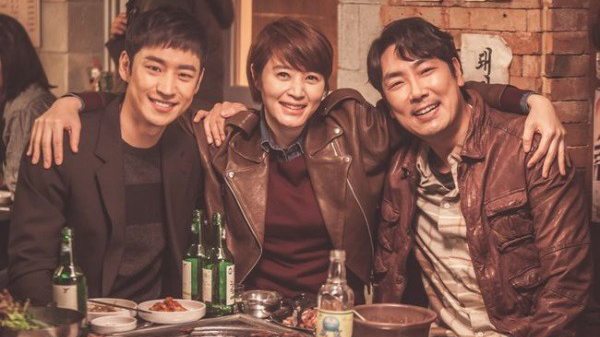
It’s always so rewarding when a drama that didn’t come out of a test tube engineered for mainstream success reaches it anyway, even though we can’t exactly argue that Signal was an underdog. And it’s not to cast aspersions on romance-centric dramas like Descended From the Sun either, because that drama earned its popularity fair and square. It’s just nice when a drama that isn’t centered on family or romance becomes a bonafide hit, because that only spells out a better future for all of us who love and enjoy dramas.
There’s no denying that tvN has been on a roll lately, and that success seems to be directly tied to its willingness to branch out from the kind of bubbly content we used to associate with the network. Misaeng was definitely a landmark series for the once-fledgling cable network, and that seemed to pave the way for this year’s Signal, featuring a dark premise inspired by the real-life Hwaseong serial murders, which still remain unsolved to this day.
Premiering to strong numbers and ending in even stronger double-digits, Signal was a commercial and critical success, earning itself awards for best drama, actress, and screenplay at the 52nd Baeksang Arts Awards, culminating in no less than ten awards and fifteen nominations across the board. And each award couldn’t have been more deserved for a drama that was stellar on all fronts, with one of the best casts assembled in recent memory, and a production team to match.
And while the show would be nothing without the writing, which managed to weave a mystery tale between two separate time periods, it was really in the directing that the show shined. And the top-notch acting too, of course. It’s hard to pick just one great aspect of the show to focus on when there was so much greatness to be had, but with a story this complicated, an unsure directing hand could have easily ruined it. As it was, PD Kim Won-suk did a stellar job differentiating the two time periods by making a choice I’d never seen made before—instead of coloring the flashbacks with a generic filter or a fade-in, which would have been impossible with how much we traveled back and forth between the two, he actually just changed the aspect ratio of the shots taking place in the past.
It was slight, just enough for our eyes to recognize that something was different about the past scenes, but not enough to be distracting. And it was so seamless that we could have a split-screen situation going on between past and present and still be able to clearly discern who was in what period, which was beyond helpful for a premise centering around a walkie-talkie connecting a police lieutenant from the present to a detective in the past.
Signal was truly unique in the way it handled the human struggles happening between our two detectives, who knew and understood that their actions could have terrible consequences. This wasn’t a drama where time was a friend or enemy—it was almost a character of its own, as inevitable as it was malleable, even though changing it came at great cost. The moral dilemmas faced by the three central characters could not have been better portrayed by Lee Je-hoon, Kim Hye-soo, and Jo Jin-woong, the latter of which finally received the top billing he so rightfully deserved. Here’s hoping this dream team reassembles for a worthy sequel—or maybe something this good is best left on its own.
Distilled Thoughts: ? ? ⏱ = ? ? ?
Jackpot
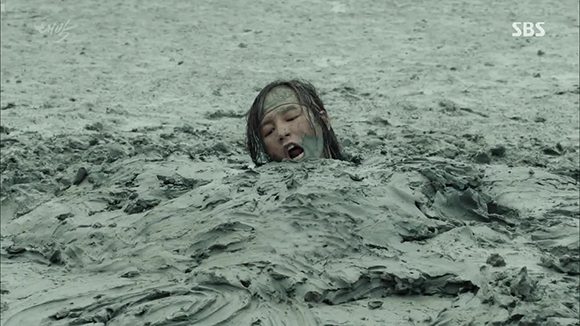
When the promo run for Jackpot started, featuring more “official” posters than you could shake a stick at, I couldn’t help but be interested when I saw that the same writer from Warrior Baek Dong-soo would be on board. That, and the fact that we were again getting two young stars and the amazing Choi Min-soo back on the small screen was enough to get me to commit to my first recapping project post-Six Flying Dragons—conveniently forgetting, of course, that the writer had only penned one drama between then and now: the completely forgettable Goddess of Fire Jung-yi.
Sure, I had some reservations about the gambling premise, since making sageuk dramas which revolve around niche ideas hasn’t ever seemed to work out too well before (see: Goddess of Fire [pottery], The King’s Face [physiognomy]), but funnily enough, gambling turned out to be the least of this drama’s problems. The reason why you can fall into so many potholes making a sageuk drama about something normally irrelevant is that you get a drama like Jackpot, which seemed to feel a need to incorporate gambling into all the major decisions made in the show, whether the idea worked or not.
More often than not, it didn’t. Looking back, what was probably the earliest warning sign that we’d be in for a wild ride was the drama’s torturous treatment of its hero, which went on for way too long. As an immortal infant, he was stabbed and thrown off a cliff. As an immortal young man, he had most of his bones broken (to the point where we had an unintentionally hilarious scene of him dragging himself on the ground using only his chin), was stabbed again, shot with an arrow, choked, tortured, stabbed a few more times, and finally, thrown off another cliff.
And that was just the punishment he endured in a single episode. Imagine that idea—that fate made the hero immortal until the time he was actually scheduled to die—dragged out through an entire series. Imagine a villain as equally immortal and nonsensical to the point of absurdity. Imagine a female lead who was so universally disliked by netizens that she disappeared from the series only to be brought back so that she could kill herself. Imagine all that stretched over twenty-four unnecessary episodes, and you get Jackpot.
It’s a shame for Jang Geun-seok, who just can’t seem to pick good projects lately. In his defense, Jackpot seemed like a good enough idea in theory, but it was in practice that it all fell apart. His character was everyone and no one at the same time, while his onscreen brother, Yeo Jin-gu (in his first and well-deserved adult role), seemed to have a slightly more defined sense of self. Still, both characters were at the mercy of an interminably messy script, which didn’t seem to understand action and consequence. Or flow. Or logic.
Distilled Thoughts: ? ? ? ⚰ ? ?️ ? ? = ? ?
Mirror of the Witch
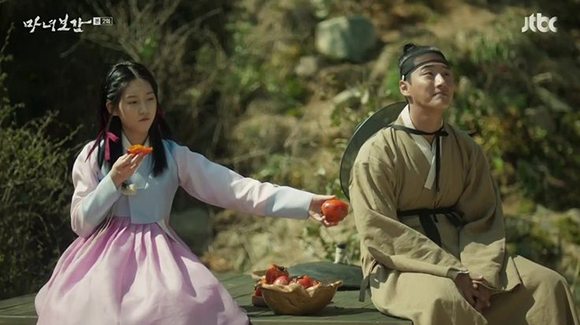
It’s been interesting to watch JTBC evolve as a cable network since its inception onto the drama scene, even though saying that makes me feel old, like get-off-my-lawn old. Remember when cable networks were new, and none of us knew what to expect from them even though we had to walk fifteen miles through the snow to watch them? I would say that those were the days, except it really feels like we’re living in the age of cable now, and that’s a feeling I wouldn’t trade for anything.
But to get the white-haired elephant out of the room, it’d be remiss not to mention that Mirror of the Witch was one of the three dramas this year that chose to pair a minor with a full grown adult—in this case, actress Kim Sae-ron was sixteen, compared to Yoon Shi-yoon’s thirty years on this earth. This is one of those touchy subjects that I’m not quite sure how I’m supposed to feel about, even though I did find it odd that the same thing happened with three different shows on three different networks. That it seems like it became a pattern is strange in and of itself, though I can’t exactly blame the networks for wanting to tap into the fresh-faced talent available to them. But in the absence of actual wisdom and new light to shed on the subject, a web of mixed feelings is about all I have to offer.
I’ve always been a sucker for fantasy sageuk dramas, and it became clear early on that Mirror of the Witch had a design aesthetic that was a cut above the rest. The first episode was a tour de force of production design, directing, cinematography, special effects, and acting, along with a dark vibe that told us we weren’t watching our mother’s fantasy sageuk. (I don’t think fantasy sageuk existed when our mothers were watching, but you get it.) The story was engrossing, and Yoon Shi-yoon was beyond winning in his first post-army role, showing a more mature side of himself without losing that streak of innocence that makes all his characters so lovable and engaging.
The actual story at the heart of all the beautiful visuals, about a witch out to kill the cursed heroine she helped create, wasn’t necessarily suited to a twenty-episode format. While there were plenty of other plot threads going on—like the involvement of Yoon Shi-yoon’s character Heo Jun (based off the real-life historical figure, which I still find to be a bit of a weird choice) in the heroine’s quest to grant enough wishes to light enough candles to kill the wicked witch of the palace while simultaneously being thwarted by her adoptive father who was previously good, but died, only to be brought back to life and controlled by the evil witch’s black magic (phew)—it always ended up boiling down to the same conflict. The witch wanted the princess dead, and the princess needed to kill the witch in order to break her lifelong curse.
Things got pretty darn convoluted along the way, what with all the different players, black magic influences, and a king unable to make sound decisions. The story could’ve benefitted from a tighter episode count, because by the third resurrection of a character previously thought dead, we were getting dangerously close to just spinning our wheels. But even so, after all the episodes spent hoping for a happy resolution to our heroine’s decidedly unhappy life, we got an ending that seemed to completely miss the point. It still makes me sad to think about it, but at least we can’t accuse the show of circumventing its own fantastical rules. And for a drama that was so steeped in its own mythology and world-building, that counts for a lot.
Distilled Thoughts: ? ? ? ? ? ? ? ? = ? ? ?
Beautiful Mind
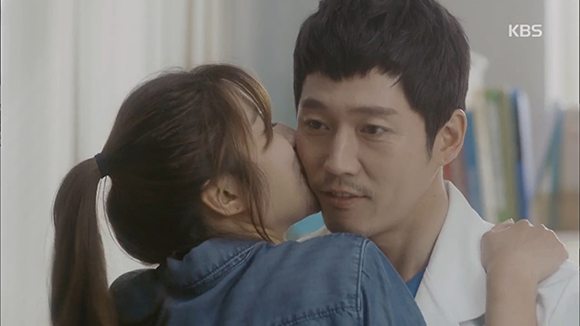
I still don’t quite buy that Beautiful Mind was cut due to poor ratings, since even as of this writing, we’re seeing a good deal of shows living well below the five percent mark. So far, even the shows that have been severely underperforming have gotten a chance to finish their runs, so what was specific to this show that it couldn’t?
Without donning a tinfoil hat, we could point to the interruption caused by the 2016 Rio Olympic Games as one reason, and the fact that Beautiful Mind had more than its fair share of production woes before airing. In order to give it time to get itself together, KBS pushed its airdate by two weeks—which, at the time, did seem like a lot of trouble to go through for a show that would’ve been able to meet its original airdate had they not insisted on waiting for actress Park So-dam to finish shooting Cinderella and the Four Knights first.
But if we were to put that tinfoil hat on for a brief moment, the fact remains that KBS did make exceptions for the show, and it wasn’t like the Olympics came as any great surprise. (You had four years to plan for this!) I can’t shake the feeling that cutting the episode count was a passive act of revenge on the network’s part for jumping through so many hoops for a show that didn’t even deliver high numbers, considering that they had originally wanted to cut the sixteen episode order to an unprecedented twelve. Kim Tae-hee, the writer, personally fought for at least fourteen episodes, because she wanted to at least see the story finished properly.
And while we still have that tinfoil hat on, it’s worth noting that literally no one wanted to accept the job as lead actor for this show—not Kim Soo-hyun, not Yoo Ah-in, not Lee Jong-seok, and not even Choi Jin-hyuk (who admittedly gave me a “one of these things does not belong with the others” vibe in this list). The drama was first purported to be a loose adaptation of Frankenstein, and while that’s still seen floating around in the descriptions of the drama, if it was an adaptation of the famous novel, then my name is Frank.
One can’t help but wonder if all the bad press surrounding the rough start was a hindrance to the drama’s numbers, and it probably also didn’t help that its direct competition also happened to be the literally named Doctors, which, despite not having a plot, soared to unimaginable ratings heights. Beautiful Mind never stood a chance.
That being said, Beautiful Mind was a rare gem in a year full of ups and downs, and I’m glad that it at least established itself as a cult hit. Those who watched it became its firm defenders, with a defining performance by Jang Hyuk as a genius neurosurgeon with an actual medical inability to love. Or so that was the idea—the drama toyed with the idea of nature vs. nurture in a big way, spearheaded by a father figure who genuinely feared his son even as he taught him to recognize the mechanics of human emotion enough for our hero to crudely mimic them.
It was very much about otherness, of our natural fear of someone we perceive to be different, and in a meta way, it was an ironic take on how we accept certain heroes as being feelingless, misunderstood jerks, only to react with horror when it’s not a personality deficit, but an actual condition. Watching how everyone in the drama reacted to the truth of the hero’s “sociopathic” nature proved to be a strange moment of realization, since we’ve had dramas where heroes outright mistreat heroines out of love, and yet no one in-universe thinks twice about it.
Though it was never made absolutely clear whether our hero suffered from a condition or whether he’d just been raised to believe so, what mattered was his growth as a person, as he came to love the bubbly, bumbling cop that barged into his life. By no means was this drama perfect, but it was thoughtful in a very special way, and the directing elevated the show into something truly special. I still wish Yoon Hyun-min had been included in the A story, since he was relegated to the B story of unimportant hospital politics the entire show, but the day we see a doctor drama without hospital politics is the day hell freezes over.
Distilled Thoughts: ? ? ? ? ? = ?
Wanted
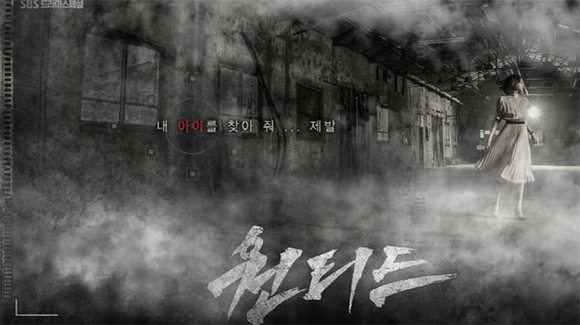
Talk about a premise chock-full of great dramatic potential. Centering around a well-regarded actress ready to end her career, Wanted started in earnest when her only son was kidnapped and held for ransom. But not just any ransom—the actress, played by Kim Ah-joong, had to put on a reality show and follow the missions given by her son’s kidnapper in order to receive proof of life each week.
Sounds thrilling, right? It really was, especially in the beginning. Those first few episodes, with Kim Ah-joong searching for her son while being relentlessly followed by Uhm Tae-woong and his camera, turned the reality of being a star into a cruel, sick joke. The guerilla-style format of the reality show worked in our favor, since we were taken along as the actual show’s audience might be, and we could be there with her for every moment and every mission.
The problem came when those missions were too easily accomplished, even when they were centered around exposing corruption and thus dependent on those corrupt people to somehow confess to crimes they’d previously kept hidden—on live television, no less. As we lost the guerrilla format and fell into a more normal routine, the show began to lose its sparkle. The urgency was gone when the show became about Kim Ah-joong talking to the audience from the safe confines of a studio set every night, and we couldn’t exactly feel her heart-wrenching fear for her son’s safety when she could be so formal and restrained on screen.
That’s where Kim Ah-joong’s limitations came into play, though even now, I’m still struggling to pinpoint whether it was primarily a fault of the acting or the writing. We just missed so many opportunities that should’ve come easily with a premise like this, and were doomed once Uhm Tae-woong ended up restrained in the writer’s room when he could have—and should have—been following Kim Ah-joong around as she worked to complete her various missions. For most of the second half of the drama, I usually couldn’t help but scream, “Why isn’t anyone filming this?!”
I realize that’s kind of ironic, since it was being filmed for us, but we lost that connection of being both the audience for the show within the show as well as the show itself. It was a quick road to detachment after that, especially when the premise got stretched on long enough for its seams to not only show, but split wide open. The ultimate mastermind proved to just be on the revenge warpath because his wife died of a faulty product, so the entire point of the reality show was to eventually expose the company which made it. And I think that could’ve worked had the show used one of its more top billed cast members to fill that role, since the reveal would’ve packed a bigger punch that way.
But that’s all coulda, woulda, shoulda. In the end, Wanted turned out to be inoffensive entertainment that wasted the talents of its two male leads. Ji Hyun-woo was excellent as the principled detective who pitches in to help the production team find the missing child, and while Uhm Tae-woong could’ve been utilized to a much greater extent, he did well with what was given to him. This was also a show with some engaging side characters, from Park Hyo-joo as the writer who finds her humanity in the process, to Jun Hyo-sung, the young assistant who finds herself in way over her head. The bromance between Ji Hyun-woo and his partner Shin Jae-ha was definitely one of the highlights of the show, enough to where I’d be more than fine if they got their own spinoff. Hint, hint.
Distilled Thoughts: ? ? ? ? ? ⏰ = ?
W—Two Worlds
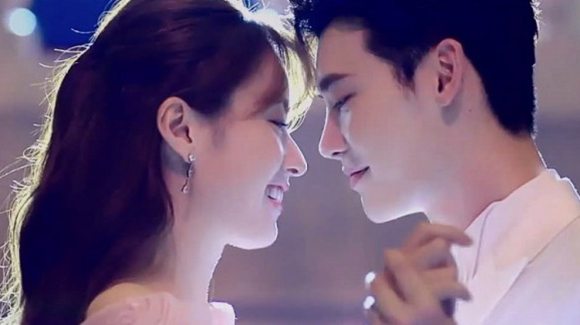
Part of the problem when going into a project with a well-respected writer is our expectation that they can capture lightning in a bottle again, so the bar was set pretty high for the premiere of W—Two Worlds, considering that it was helmed by writer Song Jae-jung (Queen In-hyun’s Man, Nine). The good news is that it delivered in a big way, with one of the most novel premises ever to hit the airwaves. And that, in an of itself, is worth plenty of praise.
Of course, the question then becomes whether we should reward big ideas just by virtue of their bigness, even if the story that follows isn’t exactly the most coherent. Should we reward the well-worn drama done exceptionally well, or the newcomer with grand ideas and somewhat messier execution? In the end, I guess the idea would be to have a drama that can be both at once (and that drama aired this year), but not every show can be Signal.
And you know what? That’s okay. I do wonder, looking back now, whether my feelings for W are mostly tempered because I never really fell headfirst into the show’s world. I liked watching it, and found some of the directorial choices top-notch, since the fantastical element of the show required nothing less than an assured hand behind the camera. It’s in the writing that the show seemed to falter, but it’s interesting that it took about twelve episodes before the seams really started to show. Even then, it wasn’t like we were witnessing a train wreck, but the effect was almost worse—the ideas we thought had a basis that hadn’t yet been revealed to us just turned out not to have much of a basis at all. Those reveals we thought were forthcoming didn’t come. Those answers we sought remained questions.
But it was in W’s portrayal of its villain that it lost one of the most promising and intriguing aspects it had going for it, at least for me. Up until No Face actually got a face, the drama seemed to be toying with some very meta ideas about how we, as audience members, consume entertainment. I liked the outlandish idea that our reactions could have real consequences for people we’d normally never consider people, and how we, as consumers, can be an unruly mob sometimes.
That’s an idea I thought was personified in No Face, especially when he was prone to repeating complaints the W audience (both the fictional and real ones) lobbed at the creators. The audience’s hunger seemed to drive him to continue to make his and Kang Chul’s story relevant, so for the longest while, it really seemed as though No Face was simply the embodiment of the demanding fans which had created him, that he was our expectations in character form—a faceless, nameless creature born of our own insatiable need for gratification. There really could have been something to say there, but then he got a face, turned cartoonishly evil (though I suppose one could argue that was his point), and any rules we thought existed became more like gentle guidelines. Still, props for originality.
Distilled Thoughts: ? ? ? ? ? ? ✍️ ? = ❓
Age of Youth
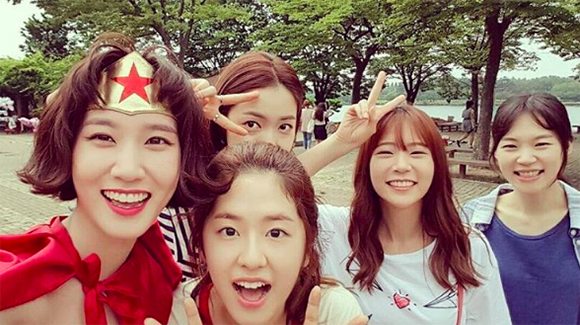
Sometimes we get lucky with writers who seem to be addicted to their work, and who consistently put out at least one drama a year. The downside is that not all of them may be winners, but we can usually take some comfort in the fact that they’ll get another chance in short order to prove our misgivings wrong. In an ideal world, anyway.
Such isn’t the case with writer Park Yeon-sun, who I’ve been obsessed with since she penned White Christmas, one of the greatest dramas of all time. And then followed it up with Wild Romance, one of the not-so-great dramas of all time. And after that, I didn’t think much of her except to miss her once a year when it was time to write reviews, since we saw neither hide nor hair of her since the year of our lord 2012.
But then Age of Youth happened, and it couldn’t have been any more a return to form for a writer who may just be the best at creating unique-yet-complimenting personalities in a decidedly ensemble cast. It may not have had the creepy factor of White Christmas, but Age of Youth seemed to very much be its sister, replacing a predominantly male cast with a group of five very different young women living in close quarters.
It may not have had a big twist to offer, or even a cast full of big stars. But what it had was heart, excellent (if smaller-scale) production values, and a cast chemistry that simply couldn’t be beat. For anyone who’s ever had a roommate, this drama may have hit a little close to home, but that’s where it excelled. Each cast member brought something unique and undeniable to their character, whether it was Han Ye-ri’s stifled suffering, Han Seung-yeon’s bright but deeply flawed attitude, Park Eun-bin’s wisdom beyond her years, Ryu Hwa-young’s inner tenderness despite her tough exterior, or Park Hye-soo’s innocence and inner strength.
Watching the girls grow in ways both small and large as they lived together and endured life’s problems together was one of the most rewarding experiences I’ve felt watching a show this year, since it really did feel like we were watching people, not characters. I have to admit that while I went into this show thinking I’d love Han Ye-ri the most (I’ll never stop loving you, Six Flying Dragons), I came out with a new appreciation for Ryu Hwa-young, who managed to survive the sinking of the T-tanic in better shape than her bandmates. It could just be that the role was tailor-made for her, but there was just something about her grudging reluctance to be the mother hen she was clearly born to be that made her infinitely likable. At the point where you’re holding your roommate’s hair back while they puke their guts out, you’re their friend, whether you like it or not.
Distilled Thoughts: ? ? ?? ? ? ? = ? ? ?
Cinderella and the Four Knights
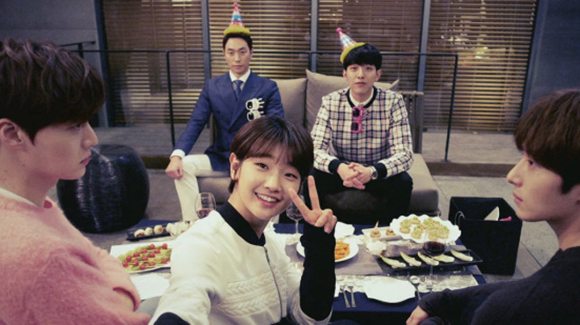
This has been a year of hits and misses for everyone who jumped on the pre-production bandwagon, and Cinderella and the Four Knights falls somewhere in the middle. It’s easy to review the dramas that aspired to be something and maybe failed at it, because at least there’s glory in trying. It’s more difficult to discuss dramas which never tried to be more than they were, especially if they were only just okay at it.
Before 1% of Anything happened, I would’ve pointed to the fact that the show relied on a dated premise as being where the show might’ve misstepped on its journey to entertain. But if 1% showed us anything, it’s that dated can still feel fresh and new if treated properly, so that gives Cinderella slightly less of an excuse. To be fair, there wasn’t anything inherently wrong with the show—it was dumb but watchable and made purely to be tween fluff, despite airing near midnight on tvN’s it’s-okay-if-you’re-already-asleep time slot.
Surprisingly enough, it did pretty okay for itself ratings-wise, considering that it was in such an odd time slot to begin with, and that it lacked massive star power. It had enough trouble finding a broadcaster in the first place, but it could’ve done much worse than tvN, which automatically lent it a legitimacy I’m not quite sure it earned. But again, I feel like that’s being harsh for a show that wasn’t trying to be the most cerebral hit of the year, and besides, it had Jungshin. Automatic win.
Joking aside (but it’s true that I developed a weird love for Jungshin after seeing him try his little heart out in the mess that was Sword and Flower), this show would’ve been fine if it made more of an effort to just be a fluff piece, rather than a real drama. It was when the second lead angst set in that it derailed in earnest, with Sohn Na-eunplaying that girl that all the boys like because the script told them to. Pretty but disorientingly bland, she achieved the rare feat of making Ahn Jae-hyun look better by comparison. What’s even more bizarre is that he managed to upstage Jung Il-woo in the beginning of the drama, though it didn’t help that Jung Il-woo’s character was an angsty, angry mess for what felt like way too long.
But for her part, Park So-dam put in a good performance as the Candy/Cinderella whose plucky personality makes her a prime candidate for her use by a wealthy grandfather to teach his wayward grandchildren a lesson. If it sounds a lot like 1% of Anything, it’s only because the premise itself is very old school, and both dramas definitely delved into what we loved about those old school dramas back in the day. But a case like this makes me think that we’ve moved on for a reason, and that the classic Candy tales aren’t enough to please a modern audience constantly searching for fresh stimuli. It’s not that they can’t be used at all—this is dramaland, after all—but if it’s going to be done, it’s got to be done well. Otherwise you get mildly entertaining but totally forgettable fare like Cinderella and the Four Knights, which isn’t the worst thing to happen, but audiences deserve better.
Distilled Thoughts: ? ? ? ? ? ? = ?
Moonlight Drawn By Clouds
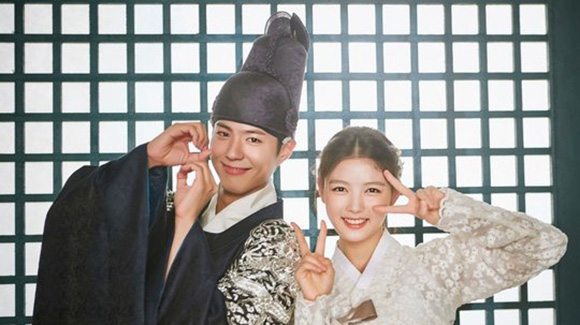
Even if Moonlight Drawn By Clouds had been a terrible drama in an alternate universe that wouldn’t be worth living in, it would’ve been remarkable if only for the unprecedented ratings jump it experienced between its first and second weeks, doubling its premiere ratings in one shot. And while numbers are something we can quantify about a show, the factors that went into the sudden surge in popularity are decidedly unquantifiable, and led to terms like “The Park Bo-gum Effect” and “Moonlight Syndrome” being created to try and figure out what on earth was going on.
And while I think crying phenomenon every time a show becomes massively popular might get old soon, it hasn’t yet, though I don’t know what to expect from dramas that will clearly look to replicate Moonlight’s success in the future. Strictly because what made it so good can’t just be boiled down to one or two things, but an amalgamation of all of them, and a kind of energy that seemed to infuse the whole production. It honestly felt like, at every turn, the production kept asking itself, “Is this delightful?” And if any part of it wasn’t, it wasn’t included.
Of course, that doesn’t include the necessary angst we had to go through, but we were rewarded for every tear shed. The general feel of the drama inexplicably reminded me a little of the heyday of objectively bad but immensely satisfying Japanese dramas like Hana Kimi, which filled each frame with a sort of manic, infectious happiness. I realize it’s one of the oddest comparisons to make, and one that might only be relevant to me, but the sheer enjoyability of Moonlight brought back those memories. It wasn’t manic, but it had an underlying feeling of goodwill and happiness that was hard to ignore—and that, for me, is what carried the show.
Okay, that and Park Bo-gum, who portrayed one of the best and most memorable characters of the year. He was levelheaded and uniquely cunning as Lee Yeong, a crown prince based off the real-life historical figure. But that’s where the similarities seemed to end, and admittedly, that took some getting over when we reached the end. I couldn’t quite decide whether I was satisfied or just a little dismayed by the historical shift, but I ultimately ended up satisfied. While there’s a part of me that wonders if we couldn’t have accomplished the same story with a fictional king (so as to not flout history so thoroughly), I also had to remember that this show was based off a novel of the same name, and was therefore bound to its rules. Besides, would we have been happier if Lee Yeong died as long as history was preserved?
I know everyone was all about Kwak Dong-yeon in his first “adult” role, and I couldn’t be any happier for his success. My first exposure to him was as a young he-who-shall-not-be-named in Age of Feeling, and I remember thinking that the drama would have been much better off had they just kept him on for the entire show, despite his age (of feeling). Similarly, Kim Yoo-jung belied her youth with a grounded performance as a eunuch in drag, and seems destined for a life of stardom—though I don’t think tons of mature roles will be forthcoming for a few years yet, since she still looks as young as she is.
But Jinyoung was the one who ended up stealing my heart, and you can imagine my surprise when I looked him up and discovered that he wasn’t a seasoned young actor, but an idol-turned-actor. I still have trouble reconciling that idea, since he always seemed so in his scenes, with this sort of quiet stoicism that hid a wealth of feelings beneath. I even admit to wishing that he’d get thrown at least one bone by the girl he silently dedicated himself to, but the main pairing was much too strong to endure interference by that point. Wait, is what I’m describing Second Lead Syndrome? It is, isn’t it? Why have I just realized this now?
Distilled Thoughts: ? ✍️ ☁️ ? ? ? ? = ?
Moon Lovers: Scarlet Heart Ryeo
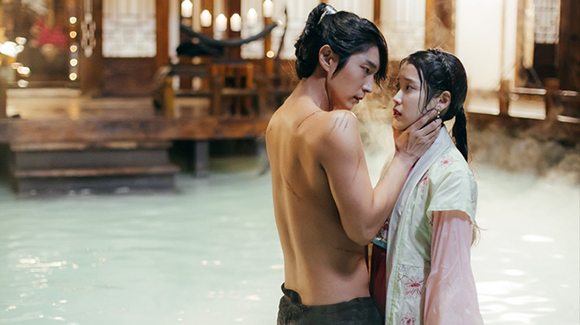
I remember when we were all excited for the advent of pre-produced dramas, because after seeing the kind of trainwrecks live-shoot could produce, we thought that surely, surely, pre-produced dramas couldn’t possibly suffer from the same fate. They’d have the entire drama in their hands before the world saw it, they’d have written it with an ending already in mind, and the story told would undoubtedly be more complete than one being written on the same day it was to be shot. The actors would be more rested, the director would have time to plan his shots, there’d even be time to pitch and test ideas. How could you possibly go wrong?
Cue Moon Lovers: Scarlet Heart Ryeo, which proved that a pre-produced drama can be just as bad as one haphazardly shot live. We could dedicate entire studies to everything that went wrong in this show and still come up short, because it wasn’t just one or two things. It was everything wrong at once, sometimes in varying levels of wrongness at any given time, with the odd smearing of soul-shattering potential that would never be realized.
There’s always a risk with adaptations, and sometimes, it just seems to be the luck of the draw as to whether they do well or not. While dramaland has had some great successes adapting webtoons, its history with adaptations from other countries has been a bit more storied, and I imagine that it was tough to adapt a megahit like Bu Bu Jing Xin (otherwise known as Scarlet Heart) to correspond with Korean history, rather than Chinese history. But in all actuality, that was one of the few things the drama got right—by transporting the story to the very beginning of the Goryeo dynasty, it worked that we had King Taejo with his many, many sons to play the nine(!) princes central to the story.
So it wasn’t a matter of the story itself being unadaptable, but that you’d need a strong writer to condense what was originally forty-five episodes of material into a much more palatable twenty, without sacrificing story clarity or logic. And that’s where writer Jo Joon-young didn’t come in, because despite Moon Lovers having an enormous budget of thirteen million dollars, they skimped out on a seasoned writer, instead going with one who hadn’t worked since 2009, and whose prior works weren’t even well-regarded hits.
But let’s say that the writing wasn’t nonsensical and self-negating at every turn, with some strange choices I’ll still never understand. We’d be left with the directing, which on its own wouldn’t be able to save a show, but boy, could it have helped. I really tried to put my reservations about PD Kim Kyu-tae aside for this drama, despite being strangely fascinated by the problematic downward spiral his work has taken since he finally branched out on his own (as opposed to being one of two directors on a given project). He had such great potential when he worked on A Love to Kill, and his unique style was seemingly at its peak with Padam Padam: The Sound of His and Her Heartbeats, one of the four Noh Hee-kyung dramas that would shape his career.
And weirdly enough, his style was somewhat more tolerable with writer Noh Hee-kyung’s projects, even though I wonder if that’s what led him to believe that his style could work on any drama. By the time we got to It’s Okay, It’s Love, his was a style that was so off-putting that it would actively make me angry, because so many of his problems could be solved by just not shoving his camera into the actors’ faces. The idea of cinematic affectation, of using your shots to actually convey narrative information to the audience (gasp!), was completely lost on him. And never was that more apparent than in Moon Lovers.
So often, the shots were just wrong for the scene, with jarring closeups that failed to give us context and awareness of the characters’ surroundings. It was nice to be able to see the shifting emotions in Lee Jun-ki’s beautiful face, but in period dramas especially, we want to see the lush surroundings, the sumptuous costumes, or sometimes, even the other characters in a scene. That doesn’t seem like too much to ask, right?
But it was, which meant that two corners of the much-coveted Drama Trifecta were already missing. That left acting, which was a decidedly mixed bag. The lack of narrative focus made the excess of princes just that, but in a drama dependent on having the heroine be the audience’s eyes and ears into the strange world she found herself transported to, IU could not have been more woefully miscast. And the directing could not have been less helpful in that regard, since the endless closeups did the doe-eyed idol star no favors when her gamut of emotions seemed to encompass only shock and sadness.
If nothing else, Moon Lovers even proved that behind-the-scenes woes aren’t solely reserved for live-shoot dramas, as the production team began to scramble after a disappointing premiere week, leading them to haphazardly edit all the footage they had into different versions of the episodes they’d already sent out for international consumption. Which, in turn, led to a good deal of confusion over why so many of the choices were made. It’s unfortunate, since there was just so much untapped potential for something great here—and there was one episode in twenty that proved it—but all dramaland can do is learn from this, and all we can do is try to move on from it.
Distilled Thoughts: ? ⏰ ? ? ? ? ? = ? ? ? ☹️
On the Way to the Airport
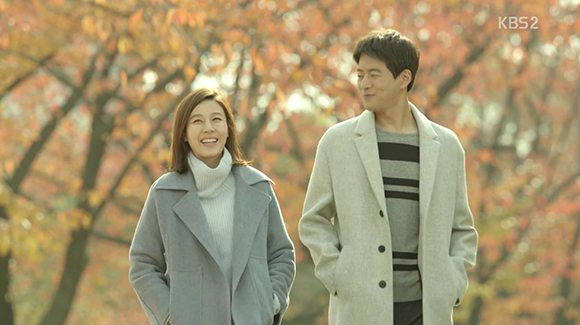
On the Way to the Airport OST – Sun Woo Jung Ah – “City Sunset” [ Download ]
Audio clip: Adobe Flash Player (version 9 or above) is required to play this audio clip. Download the latest version here. You also need to have JavaScript enabled in your browser.
In a word, On the Way to the Airport was beautiful. The directing was lush, the overall tone of the drama thoughtful and intense, and while the storyline of two married people finding each other was relatively simple, it reached new depths with every episode.
And for all that, it was relatively unassuming, which is something I really came to love. It felt like the drama existed solely to tell its story, which came as a welcome reprieve from the shows that seem genetically engineered to hook you based on what audiences statistically go for, like there’s someone just crunching numbers behind the scenes in order to make sure the drama appeals to everyone at every moment.
As a repressed wife, mother, and careerwoman stuck in a baseline functional but essentially loveless marriage, Kim Haneul created a character who we could not only sympathize with, but even root for as she broke her marriage vows. Her relationship with the overly sweet and thoughtful Lee Sang-yoon worked because it felt so forbidden but so right at the same time. This was a drama constantly bristling with tension, where one well-timed look or one text could set off a flood of emotions, both in the characters and the audience. I’m pretty sure I couldn’t sit very still throughout the whole show, since I was prone to trying to talk the characters into just being together forever already.
Which is a bit weird for me, since I’m not the type to fangirl over the shows made to be fangirled over, and yet there I was, making a fool of myself for sixteen episodes. I wouldn’t change a moment of it though, since I love shows that can actually transport us into the midst of our characters’ lives, so that we feel every struggle as they do. The ups and downs of Su-ah and Do-woo’s relationship felt masterfully mapped out and based in reality, which owes a lot to the tempered directing hand and thoughtful writing. Some episodes could pass with few words spoken, with the story mostly being told through the use of music and long, lingering shots.
On the Way to the Airport was even good enough to make me forget how much I wanted Lee Sang-yoon and Shin Sung-rok to reunite on-screen for Liar Game 2. I still can’t believe we had both men on the same set, but that they barely interacted—though Shin Sung-rok seemed out of place in a role which required him to act normal for a change. He’s the one iffy spot of the show, even though I still love his weird face to pieces.
Distilled Thoughts: ✈️ ? ? = ?? ?? ??
The K2
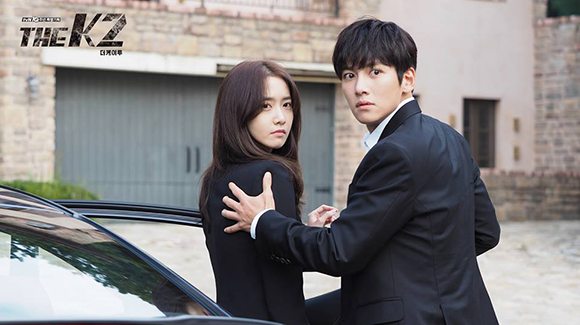
Conspiracy in the Court and Chuno still stand as two of the best dramas ever made, but because Basketball was so phenomenally, incomprehensibly, soul-suckingly bad, I’ve understandably been a little gun-shy about PD Kwak Jung-hwan. And, to be honest, he’s another director whose career oddly fascinates me, since he went from unilateral greatness (Chuno) to general okayness (Runaway: Plan B), to the nightmare mentioned above (Basketball).
His body of work seemed to have taken a downward spiral from which there was no escape, and this year’s Neighborhood Hero, while not being one way or the other, didn’t serve as much of an indicator as to whether his newest project would be a return to form for a director who knows his way around action scenes. So I was nervously hopeful for The K2, thinking that it seemed like just the kind of drama PD Kwak would be good at. And secretly, I was hopeful that he’d come back with a bang, which would ideally mean a return to blockbuster sageuk territory in the future.
Ratings-wise, The K2 was a success for cable network tvN, garnering praise for its slick directing and action sequences. But it was that same success that ended up confusing me through most of the show’s run, because the story itself was unfocused, and the hero, while being played winningly by Ji Chang-wook, never felt like a lived-in human being, despite the endless flashbacks to his tragic past. I never got a sense for why he was doing most of the things he was doing, since the idea of his revenge was so ambiguous that it took sixteen episodes for him to act on it, when he could’ve just as easily done what he did in the first act for all the preparation it took.
Because of the shared writer, there were too many Yong-pal vibes for me to ever get too comfortable with the heroine who, like her counterpart last year, was relegated to being a helpless waif in a nightdress for far too many episodes. Her purpose became increasingly amorphous as the story seemed to roll on just fine without her—at first, she was being relegated to another country in order to hide the fact that she was a prominent politician’s daughter. Then, she was brought to live in her father’s house, but wasn’t allowed to leave. Anyone who knew of her existence seemed far too comfortable in the knowledge that they’d be murdered if she were to ever get out, even though we reached a point where literally everyone knew, though the threat of mass executions by a politician seeking to be president was still supposed to be taken seriously on our part.
For reasons made purposefully vague (and relying way too heavily on that random foreign photographer), she was then allowed more freedom in the story to move in and out of the house, with her identity eventually being revealed, and nobody being all that affected by it. Kind of makes you question why all the cloak-and-dagger stuff was necessary in the first place, but even if we did buy that it was, Anna always felt like she was struggling for relevance in a story that seemed very much as though it just wasn’t about her.
Perhaps, if played by a more engaging actress, Anna could have come off as more than just a girl who needed protection. But the writing just did the character zero favors, which likely didn’t help Yoon-ah put in a stronger performance, since it was difficult to tell whether the blandness of character came from the script, actress, or a little bit of both. It also didn’t help that she was greatly overshadowed by Song Yoon-ah, who not only stole the show, but dominated it.
I do wonder if the overall problem was a lack of restraint in the directing department, since Kim Gap-soo, a seasoned veteran, spent the entire show doing evil things openly and laughing maniacally, more cartoon than worthy adversary. Lee Jung-jin also equated villainy with what was usually unrealistic arrogance and an unceasing case of the giggles, even in the face of a bomb threat that his genius rear end apparently thought was a great idea. Tell me this: How does it make sense to drag a ginormous bomb to the doors of the supercomputer you want to steal? And then to not have an off switch for said bomb? Oh, Drama Villains. You still have much to learn.
Distilled Thoughts: ? ? ? ? ? ? ? = ? ? ? ? ?
Woman With a Suitcase
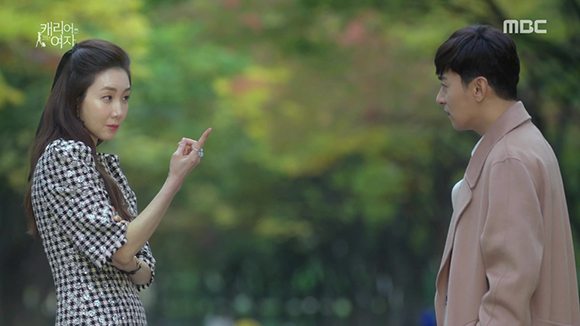
This is one of those shows that worked by the seat of its pants, and yet another of this year’s shows with unnecessarily elongated titles. The suitcase in Woman With a Suitcase wasn’t even in the bulk of the drama, though I guess we should be grateful that the show didn’t constantly feel the need to mention it in a “See what we did there?” nod to the title.
Though I’m a bit hard-pressed to remember solid details about this show despite it ending only recently, I did enjoy the experience of watching it week to week. It never tried to be too deep, and the cases it tackled from episode to episode were engaging in the moment, but were ultimately fairly forgettable. This wasn’t the Punch of legal dramas, by any means. It was its younger, less focused half-sister, but with some endearing characters at its heart.
What did surprise me while watching was the show’s sense of humor, since I hadn’t been expecting it to deliver on laughs. But whether it was Choi Ji-woo calling Joo Jin-mo’s character name out for sounding like “Hamburger,” or the petty rivalry between the men for Geum-joo’s affections, there were a surprising amount of jokes that worked.
And overall, the show might’ve done better had it tried to stick more to humorous territory rather than trying to go more deep and thoughtful, since we ended up with a corporate corruption storyline that wa—…zzzzzzz. The drama kept hinting at deeper issues, but it ended up involving so many players, each representing this corrupt conglomerate or that corrupt law fir—…zzzzzzzzzzzz.
Then there was something about teenage sex trafficking and an illicit sex video. Come to think of it, porn was featured somewhere in there too, though in as PG a way as one can refer to it. People got imprisoned, stabbed, and shot—and after all of that, Geum-joo still didn’t know whether she liked the guy who literally went to prison in order to push her to become a lawyer and defend him. Aren’t lawyers supposed to be good at making decisions?
Distilled Thoughts: ? ? ? ? = ?
1% of Anything
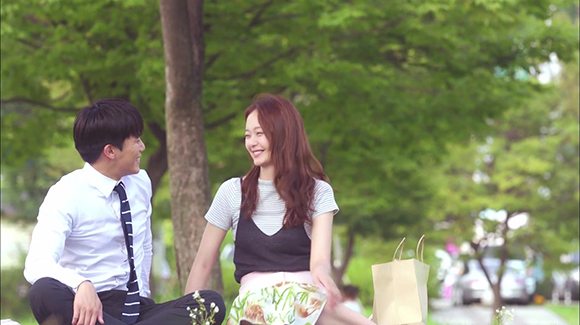
Out of all the shows that managed to surprise us this year (either for good or for ill), 1% of Anything was, at least for me, the sleeper hit of the year. I can’t very well call it that in a general sense, since it mostly flew under the radar despite being well regarded by fans and critics. But it also wasn’t made to be a hit, having started out as a web drama before moving over to the Dramax network. Sound familiar? It shouldn’t, since that channel is relatively (and by that I mean completely) new to the scene. And technically, it wasn’t produced by them, but simply re-aired.
And that would explain why the episode titles were always one episode off, because the drama was restructured from its web drama format into one drama fans are more used to, with two episodes a week airing for a total of eight weeks. Where it deviated from that format was in episode length—instead of one hour episodes or whatever ungodly episode lengths tvN has been putting out lately, each episode was forty minutes or less. Let that sink in a little bit—forty minutes is barely a commitment for the usual drama fan. By comparison with everything else airing, it felt downright breezy.
That breeziness worked heavily in this drama’s favor, since we no longer had the mandatory two hours to fill each week. The plot had to keep moving, new problems had to be presented and resolved relatively quickly, and having forty minutes shaved off each week meant that we didn’t have the time to waste on filler. The chaebol politics were kept to a minimum, the frothing-at-the-mouth second lead female kept on a tight leash, and the noble idiocy came and went so fast that you could blink and miss it.
Instead of the regular romantic drama tropes dragging on for episodes on end, we got snappy developments, meaningful resolutions, and a leading couple whose chemistry was so aces that I’m still waiting for Dispatch to report that they’re actually dating. I’m still surprised that this show managed to do in sixteen short episodes what some dramas can’t do in twenty regular episodes, which was to sell us on the lead couple.
Ha Suk-jin and Jeon So-min were perfect in their roles, with the former being absolutely winning here as a spoiled chaebol with a heart of gold—and the fact that Jeon So-min played an elementary school teacher meant that she was perfectly equipped to handle the man-child she found herself saddled with. Their relationship may have started off with a contract, but watching the two warm up to each other and eventually fall in love was a delight. Despite the somewhat outlandish premise, the couple felt very grounded and oh-so-real, leaving me with a huge grin each week. I’d heartily recommend this drama to anyone just getting into the game, or for anyone who just needs a happy pill. (But seriously you two, get married in real life.)
Distilled Thoughts: ? ❤️ ? = ?
This Week, My Wife Will Have an Affair
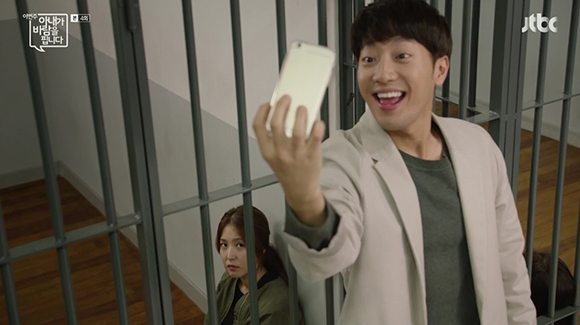
I wouldn’t have been able to predict that two of my favorite dramas this year would center around adultery, and yet, here we are. JTBC has certainly been on a roll this year, and they have my blessings if they want to keep producing more digestible twelve-episode shows, which thankfully leaves very little room for filler or pacing mishaps.
This Week, My Wife Will Have an Affair was one of many successful adaptations this year, being based off a Japanese series of roughly the same name (there are so many different English translations of this title that it’s honestly hard to keep track). Following a hardworking PD and his relationship with his emotionally distant wife, the drama encompassed a winning ensemble, each with their own stories about life and love to tell. The world felt lived-in, the characters like people you might actually know. Well, except for Kim Hee-won and Ye Ji-won, who portrayed both parts of a failing marriage due to incessant and clinically problematic cheating on the husband’s part.
While that storyline seemed to be there just for the kookiness factor, Lee Seon-kyun portrayed our eyes and ears into this strange little world of infinite pressure and societal responsibility. Inherently well-meaning but just a little clueless, his was a character you couldn’t help but like as he struggled to cope with what was eventually revealed to be his wife’s affair. Having few people to really turn to about it in real life, he instead took to the internet, and his subsequent interactions with his fans (as well as his antis) became the cornerstone on which the drama was based.
The internet forum idea gave This Week a sort of relevance and poignance I wasn’t quite expecting going in, since the community that rallied around Hyun-woo’s plight represented both the best and worst of humanity. And the show didn’t hesitate to sugarcoat how easily the tide of public opinion can turn, as well as the mob mentality that can form under the auspices of anonymity, for better or worse.
But in one of many great choices by both the writing and directing, we were also able to follow a select number of Hyun-woo’s fans through their lives and struggles, which brought home the realization that at the end of the day, what we do online can have far-reaching effects. But we saw that those effects could be positive, as the community brought an estranged husband and wife together over a common cause, bonded two women who would otherwise have every reason to hate each other, and even saved someone’s life.
I absolutely loved Lee Sang-yub as a secretly divorced emotional wreck, and his romance with BoA’s no-nonsense character was a treat to watch. The interactions and ensuing bits of dialogue, which were often as full of comedic gold as they were with touching truths, came off as surprisingly realistic. And while it was difficult to find common ground with Song Ji-hyo, who played the titular cheating wife and poster child for repression, she represented a much bigger problem specifically endemic to women—that need to be the perfect wife, perfect mother, and perfect careerwoman. Sometimes all at once.
Admittedly, seeing her fail in that endeavor was probably one of the most depressing aspects of the show, because as much as we’d like to believe that times have changed, they haven’t changed that much. And no matter how much progress we make, we can’t squeeze any more hours into the day, which is why I felt uniquely sad for her character. It’s no excuse for what she did, but it was nice that her husband came to realize what he’d been taking for granted when it came to her seemingly infinite well of patience. Every person has a breaking point, but it’s who’s there to pick you back up that really matters.
Distilled Thoughts: ? ?? ? ?️ ✍️ ? ? = ? ??
Romantic Doctor Teacher Kim
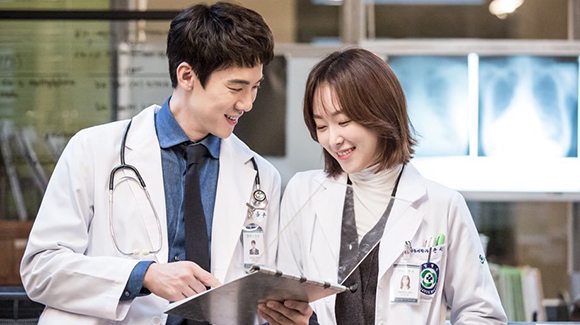
I wasn’t quite sure what to expect from this drama, because while I completely understand that there exists an audience medical dramas are tailor-made for, I can’t usually count myself among them. I’ll watch a medical drama if it seems to be about more than just medicine, like the introspective character study presented in Beautiful Mind, but if the show is literally called Doctors, I usually take that as my cue to let others enjoy the fun.
But Romantic Doctor Teacher Kim, wacky title and all, seemed to promise something a little bit different from the usual formula. The production team alone was a bizarre mixture, with the writer of makjang supersensation Baker King Kim Tak-gu and the director of History of the Salaryman, which may be one of the quirkiest, most original pieces of small screen entertainment ever. Having watched and loved many of their prior works for completely different reasons, I was curious to see how they’d end up working together, especially with a primarily makjang writer at the helm of a weekday primetime drama. (Not that she hasn’t handled those before, with Gu Family Book doing gangbusters in its time.)
So while only half the show has aired as of this writing and much can change with ten episodes remaining, so far, it’s running a fairly predictable path. I held high hopes for the quirkiness factor that seemed heavily prevalent in the show’s first few episodes, with our hero being transported to an abandoned-looking hospital out in the countryside populated with a very close-knit and decidedly odd population of doctors and staffers. But you can’t have a doctor drama without hospital politics, and we’re now in the midst of that phase. It’s a shame in a way, because for once, we weren’t dealing with The Only Hospital in Seoul, which meant that the politics were kept down to a minimum since the secluded hospital simply had other problems (like patients) to deal with.
And as the saying doesn’t go, if the hospital will not go to the politics, then the politics will go to the hospital. That was made clear in the most literal sense, when doctors from The Only Hospital in Seoul were transported to our tiny countryside hospital to wreak all sorts of dramatic havoc. Or so you’d think—so far, their intrusion hasn’t amounted to much more than some shady looks and spying, since all the strings are still being pulled by the director of The Only Hospital in Seoul, simply because he wants jurisdiction over a surgery the show tells us is Very Important.
That’s not the only overarching thread, but it seems to be the one that’s carrying most of the weight in stringing together the events of each episode into something bigger. We’ve still got Yoo Yeon-seok and Seo Hyun-jin as doctors with a storied past together, though it’s in the character of Seo-jung that I feel the writer is really exercising her makjang muscles. Her character suffers from PTSD that at first seemed to prevent her from doctoring properly (her previously injured hand sets to shaking when she gets flashbacks), and it was treated as a normal scenario when the hospital’s resident mother hen/nurse, Jin Kyung, had to try and talk her out of slashing her wrist. But she slashed it anyway, and aside from a temporary ban on treating patients because she tried to kill herself, she went back to her normal, albeit very entertaining, self.
Which isn’t to say that such a thing can’t happen, and I’ll give the show credit for not just brushing her suicide attempt under the rug, since it comes back to haunt her when the hospital politics start setting in. It’s just that her bouts of crazy come and go as needed, which is seemingly one of the things that Teacher Kim is working on fixing with a heavy dose of tough love. To that end, Han Seok-kyu is putting in a commendable performance as the curmudgeonly (romantic doctor) Teacher Kim, whose lessons are the furthest possible thing from being clear-cut. But, as the show seems to be teaching us, lessons hard-earned are the ones best remembered.
Distilled Thoughts: ? ? = ?
Oh My Geum-bi
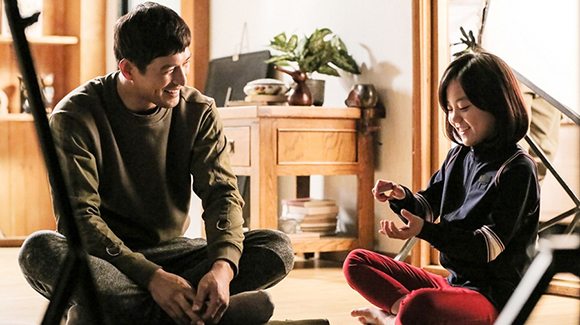
I’ve seen half the show as of this writing, and were it not currently airing, I’m very sure I would have binge-watched the entirety of it in one night. It’s weird, because Oh My Geum-bi doesn’t seem like the kind of show that would turn into straight-up drama crack, and I wasn’t expecting it to, either. But I just love everything about it, and inevitably end up cursing the week I have to wait between episodes because I want to know what happens to these characters now, darn it.
Initially, the premise seemed incredibly manipulative, in the way that most dramas about Alzheimer’s, dementia, or cancer can sometimes be. But this time, we had a drama about a child suffering from dementia, with the promos making it clear even before the show aired that she was doomed to lose her memories. The drama itself goes into more sad specifics, detailing how she’ll lose the ability to speak, control her body, and eventually, her ability to breathe.
So with all that heaviness hanging over our heads, I thought that the drama would be an unenjoyable slog, with the creators only in it to squeeze tears out of us. And while I have no doubt that time will come, it’ll be earned at this point, because the show has done such a good job endearing its pipsqueak of a heroine to us. Not since Queen’s Classroom have I seen a show risk basing its story off a miniature cast, but Oh My Geum-bi takes it a step further by placing almost all its dramatic weight on Heo Jung-eun’s tiny, capable shoulders.
And boy, does that risk pay off. Heo Jung-eun is spellbinding as the plucky Geum-bi, who’s far too wise for her years, yet still beholden to the basic things children need, like acceptance at school and a family she can call her own. She’s infinitely smarter than the father who took her in just for a get out of jail free card, and the fact that she takes herself to her own doctor’s appointments and educates herself on her terminal condition is as amazing to watch as it is heartbreaking.
The fact that I’ve only seen Oh Ji-ho rise to the occasion in one drama, Chuno, still comes as a bitter pill to swallow, since it’s hard to reconcile my image of him from that drama with the image of him as an actor with severe limitations. He’s definitely the weak link here, but is saved by virtue of little Geum-bi’s love for him, immense character flaws and all.
The addition of Park Jin-hee’s character as the lonely but kind woman who takes both father and daughter in as strangers was another risky choice, but one that’s paying dividends with every passing episode. Both she and Hwi-chul are drawn together over their love for Geum-bi, who, in reality, is a stranger to both of them. But it’s not about blood ties anymore, or obligation. It’s about love, which is maybe one of the best messages a drama can have.
Distilled Thoughts: ? ??? ⏳ = ? ? ?
THAT BEING SAID, WE’RE LOOKING AT ANOTHER GOOD YEAR
Y’know, recapping dramas that jump the shark just wouldn’t be fun without you guys there to comment and make it all better. I’ve been privileged to be a part of this awesome community for half a decade now, so here’s to many, many more.
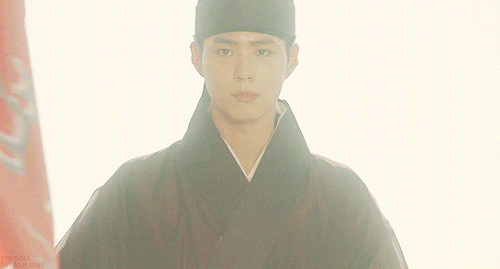
RELATED POSTS
- 2016 Year in Review, Part 3: A drama for every day of the year (girlfriday’s review)
- 2016 Year in Review, Part 2: The doctor is in (javabeans’ review)
- 2016 Year in Review, Part 1: The Bean Count
- 2016 Beanie Awards: Vote for your favorite dramas of the year
- 2015 Year in Review, Part 11: Editors’ Picks
- 2015 Year in Review, Part 10: Sweet heroes and fierce heroines (Saya’s review)
- 2015 Year in Review, Part 9: Drama tasting notes (odilettante’s review)
- 2015 Year in Review, Part 8: Santa goes Zen (Santa Claus’ review)
- 2015 Year in Review, Part 7: For the responsible addict (dramallama’s review)
- 2015 Year in Review, Part 6: A sweet year of dramas (LollyPip’s review)
- 2015 Year in Review, Part 5: The fifth wheel in dramaland (gummimochi’s review)
- 2015 Year in Review, Part 4: The five stages of grief (HeadsNo2’s review)
- 2015 Year in Review, Part 3: Five by five in 2015 (girlfriday’s review)
- 2015 Year in Review, Part 2: Giving 2015 a hand (javabeans’ review)
- 2015 Year in Review, Part 1: The Bean Count
- 2015 Beanie Awards: Vote for your favorite dramas of the year
Tags: 1 show to rule them all, 1% of Anything, Age of Youth, Beautiful Mind, Cinderella and the Four Knights, featured, Jackpot, Mirror of the Witch, Moon Lovers: Scarlet Heart Ryeo, Moonlight Drawn By Clouds, Oh My Geum-bi, On the Way to the Airport, Romantic Doctor Teacher Kim, Signal, The K2, This Week My Wife Will Have an Affair, Wanted, Woman With a Suitcase, W–Two Worlds, year in review, year in review 2016
![[K-Movie Night] A Year-End Medley](https://d263ao8qih4miy.cloudfront.net/wp-content/uploads/2024/12/YearEndMedley_1-scaled.jpg)

![[2024 Year in review] Actors bringing their A-game](https://d263ao8qih4miy.cloudfront.net/wp-content/uploads/2024/11/Jeongnyeon1112-00182.jpg)


![[2024 Year in Review] Beanie Awards](https://d263ao8qih4miy.cloudfront.net/wp-content/uploads/2024/12/beanieawards_2024.jpg)



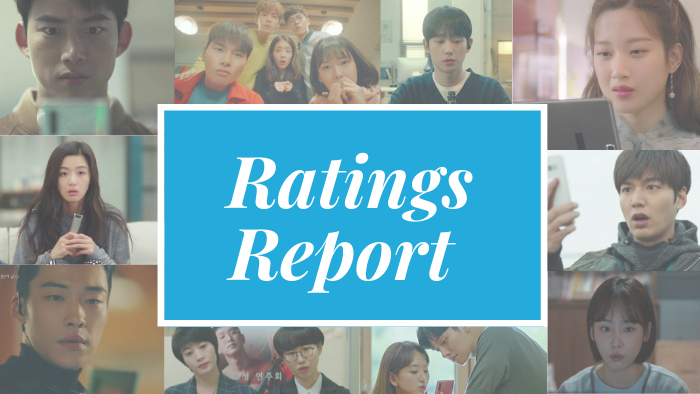
Required fields are marked *
Your email address will not be published. Required fields are marked *
51 bd5
December 20, 2016 at 9:15 PM
My #1 requirement for a good drama (even more so than acting) is a well-written script/dialogue as good actors can be brought down by a bad script and mediocre actors lifted by a good one.
PU 38 and AoY had both - and both make my list of best/favorite K-dramas of all time (rare for 2 to make it in one year).
Hadn't gotten around to watching "Signal" yet, but from the sounds of it, it might make it 3 from 1 yr.
BIOG was light and fun - did a better job w/ banter and developing the relationships btwn the leads than many romcoms, such as OHYA (which did a horrible job of it).
OHYA, despite its popularity, had a poorly written script (full of holes and usual K-drama reliance on super coincidences, cliches, stupid characters, etc.), but the saving grace was Seo Hyun-jin.
However, rather than watch OHYA, would advise people to check out "Lets Eat 2" where SHJ gives an even more winning performance in a better storyline.
MotW started off strong, but then just got too repetitive - where things started to fall apart and the writer had to go to lengths to add a "new" twist - which really wasn't new, with the resolution being much easier/simpler than it should have been.
But beautiful costumery and cinematography.
SKL - haven't finished this yet, but don't get the hoopla over it. SIG and NJH make the most out of a rather silly story-line (maybe could have handled the premise better if the actual story-line were better, but basically was a badly written chaebol power struggle w/ all the cliches, etc.).
Required fields are marked *
52 Prettysup
December 22, 2016 at 2:37 PM
Haven't found any kdramas worth watching after Beautiful Mind.
Required fields are marked *
53 emsel
December 23, 2016 at 3:14 AM
@Headsno2 Using smileys to express emotions is a genius stroke. Keep up the good work :)
Required fields are marked *
54 mariposapilango
December 24, 2016 at 3:54 AM
What? No mention of Weightlifting Fairy Kim Bok Joo?! That show is dripping with sweetness, superb writing, acting and directing. So much heart! It's the best kdrama I've watched this year and top 3 in the best ever list.
Required fields are marked *
55 Ah In
December 25, 2016 at 2:36 PM
Heads,
I saved reading your year end review for Christmas Day, so its like an extra gift because you're my favorite writer on DB along with girlfriday
Predictably it was awesomesauce and I died laughing at some of your comments (& even stopped to share the fun with my sister) especially "Jackpot" which I didn't watch but now feel like I have to hunt down clips of the action on YouTube.
Love the emoji endnotes.
Dramas:
Moonlight - Writers, Directors, Producers, over 300 Cast & Crew came together and Bang! something beautiful showed up for us drama watchers to go bananas over. Flaws and all it made itself my favorite of 2016 despite not being on my radar plus barely knowing & not even liking the lead PBG (funny story - I saw him briefly in IRY & thought he was too cold & pretty - I didn't know he was a serial killer on there, plus R94/88 mess & the wars of words of fans didn't endear me to any of its casts). Anyway I read the first recap on DB (Thank you Javabeans!) went to watch the first two episodes immediately and the rest is history. My opinion of PBG took a drastic & dramatic u-turn like the infamous kdrama driving u-turns. I livewatched Moonlight & flew through most of his videography in between waiting for new episodes. And I started commenting on DB again.
Now that I think about it I guess PBG has to be one of my favorites now, I have no choice or say in the matter except that he stand to the left next to my other favorite ajusshis Messrs. Jo In Sung & Yoo Ah In.
W TWO WORLDS - For me W is the winner of the year by sheer audacity. The audacity to bring the most authentic mind blowing premise, execute it for a thrilling unbelievable 7 episodes. And then the audacity to decide not to read too much into viewer's expectations, I paraphrase "The ring? Oh, that was nothing. Viewers thought too much" (That was priceless!) Then, "These days you don't necessarily need to explain everything (read: how the comic world came to existence, what happens to the comic world, how Kang Chul can survive in the real world, how the webtoon can write & upload itself, how Kang Chul came back, how you could overlook the ring & how Yeon Joo drew Kang Chul first, writernim, how you be so heartstoppingly brilliant and then just not care about THE END?), because the belief in fantasy is already in the viewer's minds" (!!!?!!!? I was Yu Deuk Wa's confuzzled face in goblin right there).
W is still the best original thought in 2016 though, go figure. And yes, I love it.
Reply '88 - This was the drama I SWORE I wouldn't watch because I dislike the whole husband hunt thing. I never have second lead syndrome & I hate dramas that suggest I should, or dramas are not clear where the heroine's feelings lie. I refused to watch R'94 because of that (also Jealousy Incarnate). I was just going to remember and love Reply as one awesome drama called R'97... My Gosh, my days of secretly laughing from a safe distance...
Required fields are marked *
56 Ah In
December 25, 2016 at 2:54 PM
Cont.
Reply '88 - This was the drama I SWORE I wouldn't watch because I dislike the whole husband hunt thing. I never have second lead syndrome & I hate dramas that suggest I should, or dramas that are not clear where the heroine's feelings lie. I refused to watch R'94 because of that (also Jealousy Incarnate). I was just going to remember and love Reply as one awesome drama called R'97... My Gosh, my days of secretly laughing from a safe distance at all the fan wars, outcry & outrage over Reply88 while patting myself on the back for avoiding such a deep black hole ... Only to jump in headfirst in August. Because PBG happened. And now I think I could watch a bar of soap for Bo Gum. Thankfully watching R'88 made me laugh, yanked at my heartstrings, and karate kicked all my emotional buttons which is = a billion times better than watching a bar of soap do nothing. This installment restored my faith in the franchise, now I'm hoping for a R'00s edition so I can relate even more than ever. And maybe cast Kwakkie aka Kim Hyung aka Gat Byung Hyun aka The Mane That Slays All Manes and one of the Blackpink girls because it would be hilarious to see Shin PD try to uglify them, lol.
Six Flying Dragons - Glo-ri-ous. A true epic. Between 2015 & 2016 this was the one true epic. Let no one lie & say differently.
There is nothing I love more than a good story. More than good (really good) child actors. More than excellently directed action. More than goosebumps inducing scenes & cinematographic brilliance. More than multiple well-rounded characters. More than strong females characters. And More than Yoo Ah In playing a sociopath. While W as a smart drama at its best sometimes made me feel dumb & cowardly (I mean I wouldn't do half the things those characters got up to), SFD as another smart drama at its best made me feel as brilliant, as cunning & calculating, as brave & flawed, as relentless as its dragons. I often felt like I was flying or crawling alongside them. The best & most fitting description from me is that short four letter word, epic.
Cheese In Piano Minor Solo -
First half: It really had an unusually good quality, it was the mood. The mood, tone and pace of the drama was like another character by itself. It was riveting
Second half: I don't know her.
Overall final impression: I still love the drama. Its just really hard once you've got me as good as Cheese had me to just lose me. I guess my love is immortal like that Jackpot character.
Now gimme the movie.
Required fields are marked *
57 Ah In
December 25, 2016 at 3:14 PM
Cont.
Goblin - So far I am in love with, more so the first 4 episodes, which were out of this world GREAT, now the subsequent episodes I would describe as down to earth good. The pettiness. The fights. The jealousy. The slowly revealed past. The humans v. Deities. The is he or is she the reincarnated king or queen (or is it iKON's Bobby or the I.O.I girl, BTW I died laughing at that). Goblin, mansae!!
Too much PPL though, TOO MUCH. ARHhhhg, now they even have Goblin handing out subway sandwiches to save lives & relationships, Eun Tak bribing A CHAEBOL HEIR with subway burgers, dalkomm, olive bbq, iloom, the towels, the candles, Gong Yoo's endorsements etc They have left the K2's epic coma subway sandwich endorsement in their dust.
OTWTTA - Really should have brazened-up & given Airport & Hanriver an explicit, in-your-face, Happy Ending. That and another epic smooch-fest
Weight-Lifting Fairy - Good, good, although I wish I could recapture the first glow of my love for the drama, I think Goblin started and snatched it
RDTK - First few eerie episodes were what I tuned in for. Like Heads when she made this recap I've only watched 10 episodes. I'll wait for the end to continue, or for a worthwhile development on the romantic front. Not Teacher Kim's brand of romance, that's developing just fine. I'm just a little peeved that this show teased romance so early and then left me cold (or lukewarm) and now that is stealing my joy of the show because I always feel like ffw through to see if Crazy Whale had pity on poor Dong Ju yet. Also stealing my joy is the fact that Doldam Hospital is now ... Normal. That's ... Disappointing.
OHYA - Awful lead characters. I repeat, Bodice-ripper level leads. Really interesting side characters though.
LOTBS - I watched two episodes. Dropped temporarily but following recaps (episode 9). I will have to watch it when its done because I can't imagine not watching a JJH drama & its not even the worst drama ever, its just a little disappointing. To me this drama is doing for Jeon unnie the opposite of what Moonlight did for PBG. It is revealing her weakness, where I thought there was none. I hope she chooses a project that provides something more meaty & substantial for her than just using her for her beauty & fashion power. Plumb some other depth for chrissakes! As for LMH I have no complaints, not really impressed either.
All in all, the less than expected chemistry between the leads of Lotbs is not the problem, at the end of the day I think the writing was a let down. Chicken sized feet for the giant footprint MLFAS left behind.
To watch:
Dear My Friends: I've been bracing myself long enough already, starting the new year with this.
Mirror of the Witch - I'm intrigued but stuff I'm hearing about the end... I like happy endings, does it have a happy ending?
1% - maybe. I think
38 task force -...
Required fields are marked *
58 Ah In
December 25, 2016 at 3:22 PM
Cont.
38 task force - will check out for sure
Signal - This better be good
That's all for now. Merry Christmas DB community!! ❤ ♡ ♥ ღ ❣ ❥ ❦ ❧ ლ
Required fields are marked *
59 Dongsaeng
April 28, 2017 at 8:24 AM
My 2016 drama marathon was:
1-Moonlight drawn by clouds?
2-k2?
3Moon Lovers (Which kind of a disappointment to me in the end?)
Required fields are marked *